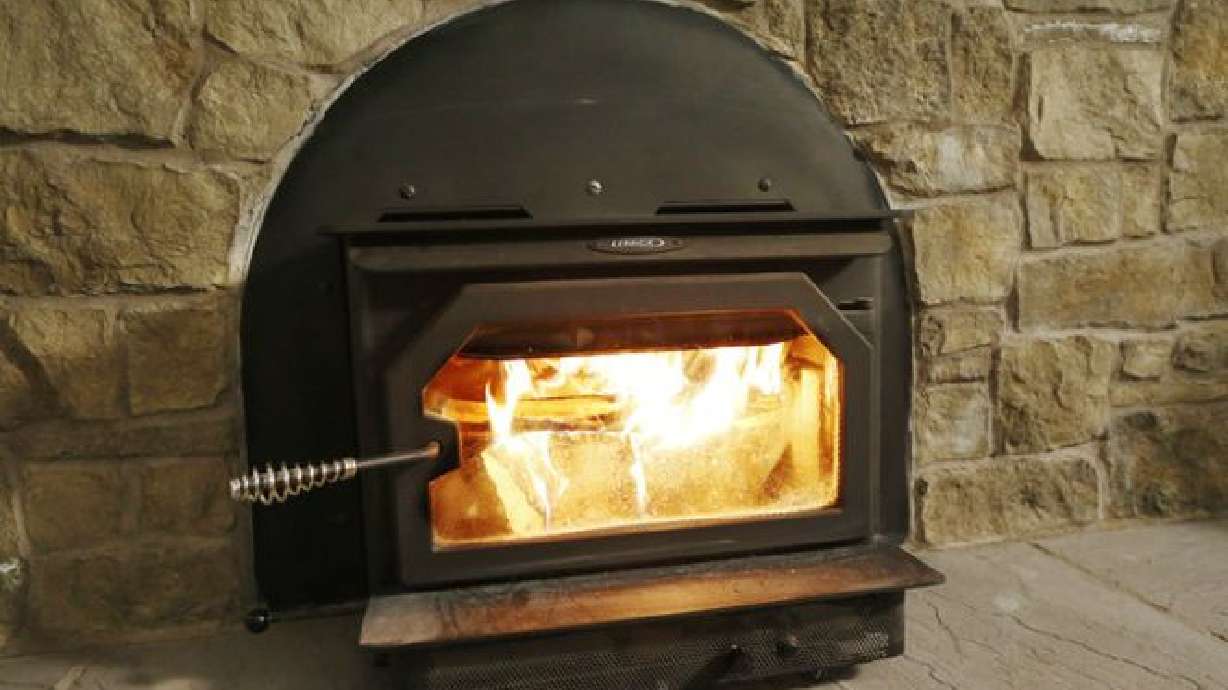Estimated read time: 4-5 minutes
This archived news story is available only for your personal, non-commercial use. Information in the story may be outdated or superseded by additional information. Reading or replaying the story in its archived form does not constitute a republication of the story.
SALT LAKE CITY — Utah lawmakers say they are hearing from roaring mad constituents who are concerned over a proposed ban on wintertime wood burning.
"We just want to be careful that we set laws or when there's regulatory changes, we're not impacting consumers, the decisions they are making, changing the rules after some believe the game has begun," House Speaker Greg Hughes, R-Draper, said Tuesday.
The proposed seasonal wood-burning ban that the Utah Air Quality Board put out for public comment has generated more than 1,000 comments from people opposed to the potential prohibition.
The action contemplated by Utah air quality regulators was brought up Tuesday in a caucus meeting of the House GOP, where Rep. Brad Dee, R-Ogden, said he intends to put in law the days when people can and can't burn.
"We're trying to find a little bit of the middle of the road, believe it or not, on this issue," said Dee, adding he's been meeting with the hearth industry and others who say that burning should be allowed on "green" days, a federally approved stove should be allowed for use on yellow or voluntary action days, and burning strictly prohibited on "red" or mandatory action days.
Senate Majority Leader Ralph Okerlund, R-Monroe, intended to run the same legislation but said it would now begin in the House with Dee's bill.
"This will start the discussion and we'll see where we end up," Okerlund said.
Hughes said the sentiment by many is that the proposed seasonal ban is too extreme.
"As far as a broad ban on people's wood-burning stoves, I'm getting a lot of emails from constituents having some heartburn over an approach like that," he said. "It just feels draconian to many. You don't have to start banning people's wood-burning stoves for an entire season necessarily. But we can start making some good decisions, whether it's the cars we drive or the stoves they have."
As far as a broad ban on people's wood-burning stoves, I'm getting a lot of emails from constituents having some heartburn over an approach like that. It just feels draconian to many. You don't have to start banning people's wood-burning stoves for an entire season necessarily. But we can start making some good decisions, whether it's the cars we drive or the stoves they have.
–House Speaker Greg Hughes
Bryce Bird, director of the Utah Division of Air Quality, said it is likely the proposed rule will be revised to an extent because of the public comments received, which is part of the process. The comment period ends Monday.
As proposed, the division sought to implement seasonal wood-burning prohibitions in those counties in Utah that fail to meet federal Clean Air Act standards for fine particulate pollution, or PM2.5.
Counties under the proposal include all of Utah, Salt Lake and Davis counties, and portions of Tooele, Box Elder, Weber and Cache counties.
The ban would have started this fall on Nov. 1, continued through March 15 and be in place each winter season.
Bird said a University of Utah study shows that wood burning, like automobiles, area businesses and industry, is part of the air pollution problem that has the state out of compliance with the Clean Air Act.
How much of a contribution wood smoke particles make to the overall airshed has been a point of controversy for both proponents of the ban — who contend it is greater — and those who oppose any new restrictions, asserting its role is overstated.
Bird said the public hearings that concluded last week in impacted counties nevertheless show that people feel strongly about burning and that more households are potentially involved in a ban than the division initially thought.
"It is not tens, hundreds but thousands who are interested in this, and many of them let us know that they burn on a daily basis and they will continue to burn regardless of what we do," Bird said.
The proposed rule, which would implement the toughest burning restrictions in the country if enacted, spawned an opposition coalition made up of industry representatives and people who burn solid fuel such as wood or pellets.
Many of those opposed say the restrictions smack up against individual liberties and interfere with self-sufficiency values and don't take into account geographic areas where natural gas is not available, or more rural areas where pollution is not as great of a problem.
Bird said the division continues to pick up wood smoke particles on air quality monitoring filters even on those days when burning is not allowed, so environmental scientists know the current restrictions aren't working.
The coalition, Utahns for Responsible Burning, insist that at the very least exemptions should be made for Environmental Protection Agency-certified wood stoves.
Any action on the proposed rule must be taken up by members of the Utah Air Quality Board. Bird said the volume of comments means the board will likely not act until April or May.
Comments may be mailed to Public Comment, Division of Air Quality, P.O. Box 144820, Salt Lake City, Utah, 84114-4820, or emailed to mberger@Utah.gov.








